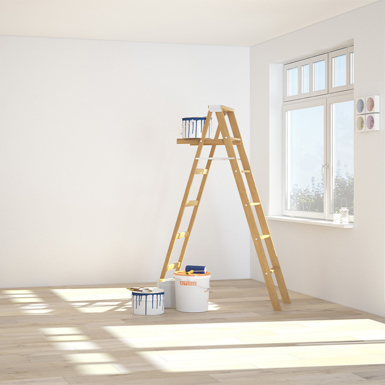How to Insure an Unoccupied House
“There’s safety in numbers.” It’s an old saying that holds true today. The more people who witness a crime, the less likely someone afraid of being caught will commit it.
But, what happens when a property is suddenly without the safety of its occupants’ watchful eyes? How can you best insure the unoccupied house? Vacant homes are vulnerable both to common risks that could impact any structure, as well as a unique set of exposures that exist solely due to its vacancy.
Whether your client is a property owner looking to protect unoccupied property after a recent renovation, or an estate executor / trustee managing property for a loved one, vacant house insurance can offer much-needed coverage.
Insurance for vacant homes is designed to protect residential structures that are entirely unoccupied and could be undergoing minor remodeling or renovations. Some policies for vacant residential dwellings may also protect the owners’ personal property stored on site, under certain conditions.
In order to secure coverage, such as the vacant property insurance product available through US Assure, for your client’s unoccupied dwelling, eligible residential structures are typically defined as a single-family home, mobile home or a one-to-four-family-unit property.
Permanent property insurance like a homeowners policy may offer protection when unoccupied, but many of these policies include clauses that limit or completely eliminate coverage for homes that have been vacant for a certain number of days. Insurers’ definitions may vary, so it’s important your clients understand the scenarios when homeowners coverage could cease.
Vandalism is the most commonly reported reason for an insurance claim on a vacant home. Other common claim reasons include fire and smoke damage, lightning strikes, water damage, personal injury, sprinkler leakage, and more. While not all of these exposures may be covered with a basic form, additional coverages options are available.
By these definitions, do you have a property client looking to insure a vacant home? The next step is to ask questions about the property’s location, loss history, building security and nature of the protection required. Armed with this information, you can more efficiently provide property owner clients the coverage they need.
To get more answers about vacant home insurance and the specific questions you’ll need to ask to better protect your residential and commercial property owner clients, download 6 Questions that Simplify Vacant Structure Coverage.
This is intended as a general description of certain types of insurance and services available to qualified customers. Your policy is the contract that specifically and fully describes your coverage. The description of the policy provisions gives a broad overview of coverages and does not revise or amend the policy.











